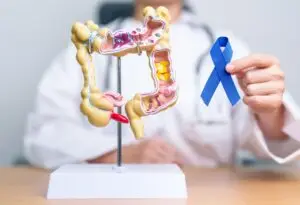Reviewed by Kimberly Glow, MD, MPH of Forum Health Knoxville
Edgar Allen Poe’s famous poem, “The Raven,” contains a great line: “Water, water, everywhere, but not a drop to drink.” While the character in the poem was surrounded by salt water and faced sure dehydration, that’s not the case for us. We are surrounded by readily available purified drinking water, yet dehydration is still an issue.
So why is water so good for our body? And what effect does dehydration have on our body? The answers to those questions will inspire you to drink, drink, drink!
Why is water so good for our body?
- Drinking water improves heart health. Researchers at Loma Linda University looked at water intake in a group of more than 20,000 men and women in their Adventist Health Study. In this study, it was shown that adults drinking five or more glasses of water each day were about 50% less likely to die from a heart attack. They made some other comparisons involving water and health, and the researchers concluded from the results that increased water drinking equals very close to smoking cessation in terms of heart health! Other research has shown that water drinking helps regulate blood pressure, improve mental performance, increase athletic performance, and regulate digestion, regulate elimination, and promote weight control.
- Water acts as a lubricant. We can break down the health perks of water in three basic groups. First is the fluid characteristic of water. Water is an excellent lubricant. It provides the means to move and flow. While it lubricates, water also protects our body parts from injury by surrounding them in a shock-absorbing fluid. This help our joints and our skin.
- Water is a solvent. Did you know that water dissolves more substances than any other liquid? Wherever it travels, water carries chemicals, minerals, and nutrients with it. Most nutrients dissolve in water. Within our bodies, some of the most vital dissolved nutrients are called “electrolytes”. The electrolyte minerals such as sodium and potassium stay dissolved in water enabling our bodies to conduct electricity! Water also allows for proper elimination of wastes which helps prevent fluid retention and constipation.
- Water helps regulate our body temperature like a thermostat. When we are overheated, water is involved by releasing heat (energy) through sweating, thus cooling off the body. Water also helps us retain heat when we need to stay warm.
What effect does dehydration have on our body?
Dehydration is a real issue and actually a common medical concern. Mild dehydration starts with a loss of fluids, as little as two percent, affecting change in the human body. Dehydration decreases the body’s performance, and sets the body up for weight gain, joint and muscle pain, poor concentration, disease, and fatigue. Dehydration can also potentially increase your risk for heartburn, migraines, angina, joint and back pain, fibromyalgic pain, constipation, and more.
Dehydration is a major cause of infant illness and death as well as hospitalization for the aging. Also, it will take longer for nutrients to be delivered to and from muscles and other parts of your body with inadequate fluid. In fact, when you are exercising or in a hot environment, the body can potentially lose two quarts per hour.
How much water should I drink?
The amount of water we drink greatly impacts the nutrient requirements for the body. Why? Our bodies are approximately 60% water by weight, 50% for women, and most nutrients move through the body in water. Water makes up about 85 percent of our brain, 80 percent of our blood, and close to 70 percent of our lean muscle. Water is also very important in the elimination of toxins by urine and perspiration. There isn’t a single bodily function – seeing, hearing, thinking, exercising, singing, and even laughing – that does not rely on water.
The answer to the “How much water?” question varies by weight, temperature, age, health, and activity. Furthermore, not everything we drink can truly count as fluid intake.
The average person loses approximately 10 cups of fluid per day through excretion of wastes, perspiration, and exhaled air. To avoid dehydration, we need to replace the lost fluids, amounting to 8 – 10 cups per day. Tea, coffee, and alcohol are actually diuretics. Drinking these fluids can strip our bodies of water rather than satisfying our fluid requirements. This is why health professionals recommend water as the main source of hydration. Water doesn’t add extra calories and contains no sugar or caffeine as most soft drinks, mixed drinks, and other sweetened beverages do.
For children, water should be the primary source of hydration. A national survey conducted by Cornell Medical Center found that children who drank more than 12 fluid ounces of sweetened fruit juices a day are more prone to obesity and diminished growth.
A general recommendation is to drink half of your body weight in ounces per day. So if you weigh 120 lbs. then you should drink 60 ounces of filtered water. You should increase water consumption as you increase your activity. So do your body some good every day with plenty of water, especially as the temperature rises!
To find a Forum Health provider near you, visit our location page, here or call 855-976-5578 to speak with one of our health advisors.






